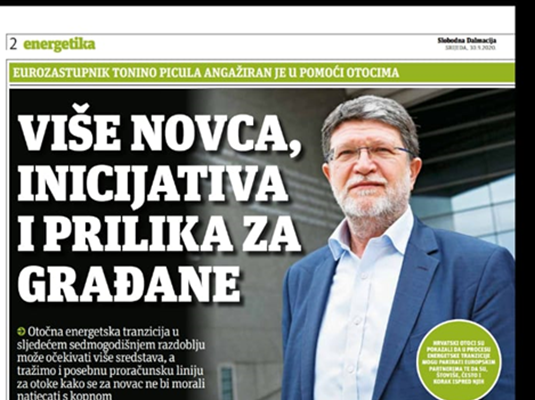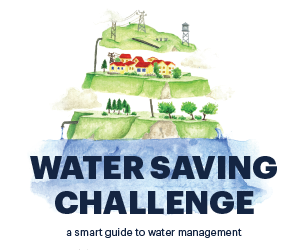Clean energy for the EU islands is the first European energy transition initiative intended exclusively for islands. The fact it has found its place in the new European Green Deal, the most important document for the future of the European Union in the next thirty years, speaks volumes. The energy transition of islands in the next seven years can foresee more money, more initiatives, and more opportunities for citizens to get involved. I am proud that today we are no longer talking about islands as a blind spot of European policies and institutions, but about approaches that would make the best European tools and policies accessible to islanders, Picula analyzed.
As part of the Horizon 2020 program, project NESOI (New Energy Solutions Optimised for Islands) has been launched aiming to co-finance 60 successful energy transition projects and to mobilize more than 100 million euros worth investments in the sector that would significantly contribute to reducing greenhouse gas emissions by 2023, and Picula therefore announced: There is still a lot of work ahead of us, but the islands are now strongly entrenched in the European agenda and I am optimistic about the European future of islands.
As President of the European Parliament’s Intergroup on Seas, Rivers, Islands, and Coastal Areas, Picula proudly announced that the Croatian islands have shown that they can contend with European partners in the energy transition process and that they are actually quite often one step ahead. Taking into account the new European Green Deal, we can expect the expansion of existing, but also the emergence of new initiatives that would enable other Croatian island communities to join, Picula disclosed, highlighting the islands of Krk and Zlarin that inaugurated their own transitions as a result of strategic reasoning, and added that this is a good reminder that we really do have the knowledge and acumen to independently initiate and lead the energy transition for which the EU can and should support us.
Moreover, the Memorandum of Split signed this June under the Croatian Presidency of the Council of the EU provided a clear political support to the long term project of energy transition of European islands representing simultaneously the first formulated proposition of modalities of institutionalized cooperation in solving island issues.
Furthermore, Picula has been appointed Parliament’s rapporteur on the report on cohesion policy commitments to climate change, what, as he states, implies a significantly more hefty financial envelope.
It will be crucial for the overall success of the project that the short-term political appetites of leaders be surmounted and to neutralize the impact of big polluters who are investing a lot of money in lobbying to mitigate the demands of energy transition in the European Union. Personally, as an S&D representative and foreign policy coordinator, I am devoting a lot of effort to achieve goals of energy transition also due to the fact that the energy transition is an important part of European security policy. The less dependent we are on energy imports, the safer we are, Picula concluded.


